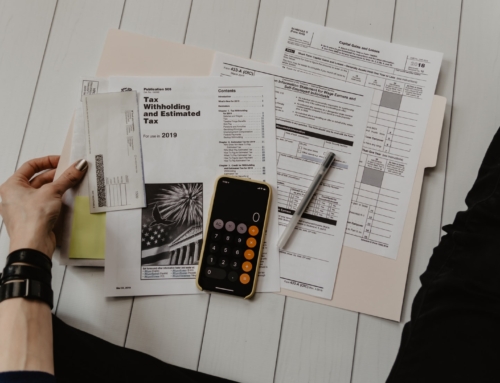Prior to the coronavirus pandemic, the tax law required individuals to take annual distributions from tax-deferred retirement accounts commencing with the year one reached the age of 72. This amount, known as a Required Minimum Distribution (RMD), was recalculated annually based on actuarial tables and taken into income over the remaining lifespan of the taxpayer. Failure to distribute the RMD resulted in a steep penalty of 50% of the amount not taken on time.
The law also assessed penalties on premature distributions. Generally, retirement funds could not be distributed to individuals under the age of 59 ½ except under specified exceptions. If distributions did not fall under one of the exceptions, the funds were taxable as ordinary income with a 10% penalty.
In March of 2020, Congress passed the Coronavirus Aid, Relief, and Economic Security Act (CARES), suspending the requirement of RMDs for 2020. The suspension of RMDs was meant to help retirees avoid selling retirement investments in a financial downturn and, hopefully, regain the lost value when markets recover.
However, many retirees chose to take their RMDs early in the year, later regretting that decision, and now want to rollover the funds. Prior to the CARES Act, rollovers were allowed with repayment required within 60 days and a limitation of one rollover per year. The CARES Act allows those who previously withdrew their 2020 RMDs to treat them as a tax-free rollover if repaid by August 31, 2020, which may be substantially longer than the previous 60-day repayment limit. Also, the one-rollover-per-year rule does not apply to these transactions.
Section 2202 of the CARES Act provides for additional relief to qualified persons who take distributions of Coronavirus-related Distributions (CVDs). Under this section of the act, a qualified person can take up to $100,000 in retirement distributions. To qualify as a CVD, these distributions must be taken between January 1 and December 31, 2020. These individuals have the option to elect either to report the distribution as income ratably over a three-year period or recognize the entire amount of the distribution in the year of receipt. Regardless of which election is made, the recipient of the CVD can choose to recontribute all or a portion of the distribution to an eligible retirement plan within three years of the original distribution. If repayment is made, the recontribution is treated as a rollover and amended tax returns must be prepared to reduce gross income by the distribution which was previously included in income. If the CVD qualifies, the distribution is not subject to the 10% penalty on early distribution regardless of the age of the recipient. In addition, the one-rollover-per-year rule does not apply to these rollovers.
While the new RMD rules apply to all taxpayers, the CVDs only apply to the following qualified individuals affected by SARS-CoV-2 or COVID-19: one who is diagnosed with the virus; one whose spouse or dependent is diagnosed with the virus; one who has experienced adverse financial consequences as a result of quarantine, furlough, or reduced work hours due to the virus; one who has experienced adverse financial consequences as a result of business closure or a reduction in hours of a business that the individual owns or operates due to the virus; and one who has experienced adverse financial consequences as a result of being unable to work due to lack of child care due to the virus. Once the person is determined to be a “qualified individual”, there are no limitations on use of the funds.
The changes to retirement distributions in 2020 due to the coronavirus pandemic enacted by the CARES Act are too vast in scope to fully cover in this article. If you have any questions, please call our office.

By Cheryl DeVoe, CPA
*DISCLAIMER*
- This material has been prepared for informational purposes only, and is not intended to provide, and should not be relied on for, tax, legal or accounting advice. You should consult your own tax, legal and accounting advisors before engaging in any transaction.




